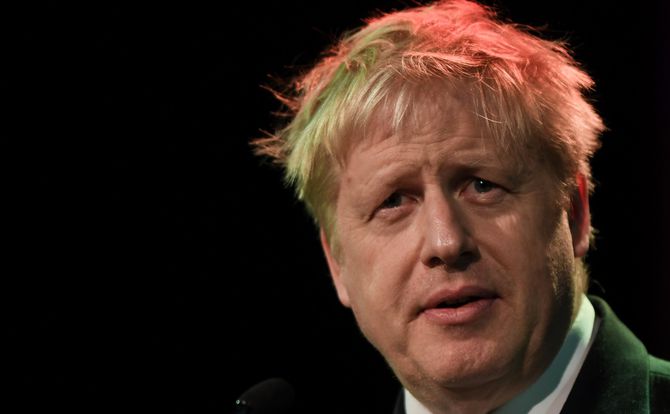Do we need Boris Johnson?
British Conservatives must pick a new prime minister from two candidates: Boris Johnson and Jeremy Hunt. With the United Kingdom’s political leadership paralyzed and relations with the EU at an impasse, an enfant terrible might be the better choice.

That is the question Britain’s Conservative Party is addressing. The decision on who replaces Theresa May as prime minister is now up to the Tories. The choice has been narrowed to two contenders: Boris Johnson and Jeremy Hunt.
Mr. Johnson needs no introduction. The former foreign secretary and mayor of London is the Conservative Party’s best-known Brexiteer, a mainstay of the “leave” campaign and a stalwart proponent of “hard” Brexit. Jeremy Hunt, the present foreign secretary, supported “remain” during the referendum, but said the arrogant attitude of the European Union’s negotiators turned him toward a negotiated Brexit.
Boris Johnson is widely seen as a British “enfant terrible,” unpredictable and convinced that the United Kingdom can do without the EU. To a certain extent, this perception may even be accurate. Jeremy Hunt, on the other hand, is likely to prefer a Brexit agreement along the lines Mrs. May hoped to achieve. At this point, however, that goal seems close to quixotic, given the stubbornness and lack of common sense that has taken root on both sides of the Channel.
Disrupter wanted
Even with talks at an impasse, the situation may not be hopeless. The worst outcome is what we have now – uncertainty and paralysis.
To cut through the confusion, some disruption may be needed. Boris Johnson would bring it in spades.
Brexit per se is not necessarily a disaster. The hard Brexit that Mr. Johnson envisages just might prompt the continental countries to start thinking more flexibly, in terms of solutions. After all, Germany, France and other EU member states need trade with the UK nearly as much as the UK needs the continent.
Boris Johnson as dealmaker would be difficult to judge by the other side.
The agony of waiting would be over. Instead, we would have Boris Johnson as prime minister and dealmaker, difficult to judge by the other side. That might force a greater degree of pragmatism from EU negotiators. It is a lot more difficult to handle and outmaneuver a partner who, like Mr. Johnson, does not fear the downside. Both sides need a solution.
Sir Humphrey’s advice
In the classic BBC television series of the 1980s, Yes Minister, a very experienced and supremely cynical civil servant, Sir Humphrey Appleby (played by Sir Nigel Hawthorne), explains to his newly appointed and still naive superior why the UK joined the European Economic Community (EEC).
For centuries, he states, London controlled Europe by fomenting conflicts and war between the continental powers. Now, as Britain’s traditional rivals have all banded together in the EEC, the UK has to join, too, in order to keep sowing dissension. This remark was both witty and historically accurate.
With all its downsides, the hard and clear Brexit Mr. Johnson wants might well be the best solution.
Yet sowing dissention wasn’t the UK’s real aim or the end result. London played a very constructive, if not always easy, role in enriching the decision-making process in Brussels. We should also realize that had the EU offered the same conditions to David Cameron as the agreement with Theresa May now contains, British voters would likely never have voted “leave” in the first place.
The worst nightmare for Brussels, and a potential trump card for London, might be the following surprise scenario: a Boris Johnson government calls for a second Brexit referendum, promoting a “remain” vote, but at the same time vowing to follow Sir Humphrey Appleby’s advice to be nasty in Brussels, throwing as much sand as possible into the EU’s gears.
Not that this mental exercise is likely to happen. But in the present situation, with all its downsides, the hard and clear Brexit Mr. Johnson wants might well be the best solution. Once it is done, economic and political necessity would force the parties to shed their bureaucratic and emotional blinkers and get back to the bargaining table, where practical solutions can be reached.
